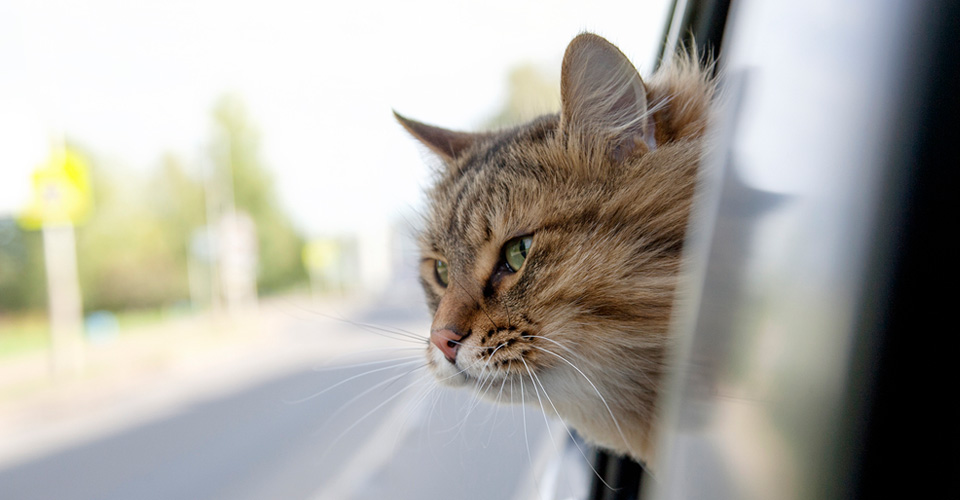Pets can’t hit the imaginary brake, bark at us to slow down, or criticise our decisions behind the wheel. So, to them, car trips can be stressful. Can pet calming tablets turn the rough ride into smooth sailing?
Pet car motion sickness.
Motion sickness is a common problem in both cats and dogs. Be it a drive down the coast or a trip round the corner, you switch into joyride mode with the practised ease of a dog wagging its tail. But for your pet, hitting the road is no different to clambering aboard a ship on a wind-strewn sea. Your feline friend won’t send out the green-faced (I’m about to throw it all up) emoji to alert everyone in the travelling group chat, but you could find yourself at the car wash sooner than you thought.
What causes car motion sickness in pets?
Motion sickness in dogs is more prevalent in puppies and younger dogs. This is because the ear structures that serve as a bearing for balance aren’t fully developed in puppies. This isn’t to say that travel sickness in those puppies will balance out when they are grown, but it will in many of them. Car motion sickness in cats is caused primarily by the stress and anxiety associated with travel, which holds true for many mature dogs as well.
Tell-tail signs.
Whether your pet is a feline friend or a canine companion, the signs and symptoms are the same:
- Excessive vocalisations
- Restlessness
- Smacking or licking lips
- Excessive drooling
- Lethargy or inactivity
- Vomiting
- Diarrhoea.
Can pet calming tablets help?
Desensitising or counter-conditioning your car companion can help them overcome the stress and anxiety associated with travel. You can try these easy techniques:
- Taking a break from car trips for a week or two.
- Changing vehicles to avoid association with past unpleasant experiences.
- Taking short car trips to places your dog enjoys, such as the park.
- Spend some time in the car with the engine off.
- Take shorter trips to build tolerance before progressing to longer journeys.
- Bring special toys that your pet enjoys along for the ride.
If counter-conditioning doesn’t work, pet calming tablets and treats are at your disposal. The most effective calming treats will usually contain one or more of the ingredients below:
- Casein
- Tryptophan
- Melatonin
- L-Theanine (also known as Suntheanine)
The content and information presented above is not veterinary advice. Nor is it a substitute for consultation with a veterinarian. Please consult your veterinarian before giving your pet any medication.



